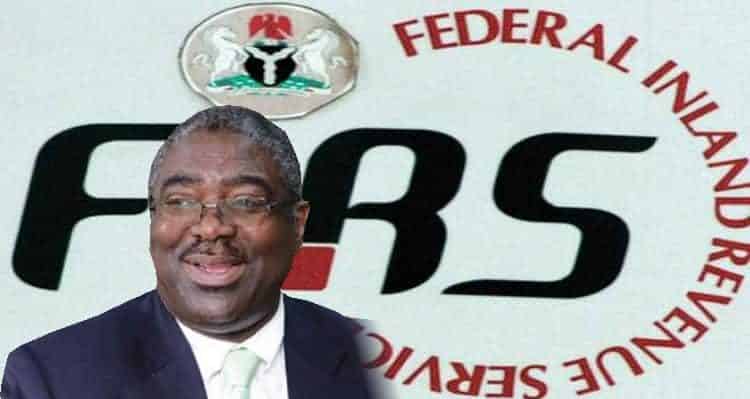The Federal Inland Revenue Service, (FIRS) has collected N4. 012 trillion in three quarters (January-September 2019).
Executive Chairman, Tunde Fowler made this known to the Senate Committee on Appropriations in Abuja on Thursday.
The amount, he said, is N77.89 billion above the N3.941 trillion collected between January-September 2018.
Though the amount collected represents 60.77 percent of the N8.8 trillion target of the FIRS for 2019, Fowler said he was optimistic that FIRS will do better than the N5.3 trillion it collected last year.
Fowler told the Senators to “kindly note that our budget for 2019 was raised by ₦2.02 trillion representing 30.4% increase over the 2018 budget i.e. ₦6.747 trillion in 2018 to ₦8.8 trillion in 2019.
“Our total tax collection to date represents 78.2% achievement of corresponding budget of 2018. Based on the collection, we expect total collection to equal ₦5.4 trillion by end of 2019.
“We are pleased to report that our drive towards developing more sustainable sources of tax revenue by shifting the focus from oil revenue to non-oil is also yielding positive results. Non-oil revenue collection for January to September, 2019 stands at ₦2.423 trillion representing 72% achievement of non-oil target for the period while Oil revenue collection of ₦1.588 trillion represents 49% achievement to target for the period.
“The total collection contribution in 2019 shows a percentage ratio of 61% for Non-oil revenue to 39% for Oil revenue, while Non-Oil collection for January to September, 2019 grew by 13% over the Non-oil collection for the corresponding period in 2018.
He noted that there is “noticeably low inflow of revenue from PPT for 2019 thus far, is as a result of shortfall in PPT estimates filed by the International Oil Companies (IOC). This is resultant from huge losses carried forward and tax incentives arising from the Modified Carried Agreements (MCA) by Joint Venture (JV) partners, unutilized Investment Tax Credits carried forward by the Production Sharing Contract (PSC) contractors which subsequently reduced the profits available for Petroleum Profit Tax (PPT). This is further compounded by production constraints which has continued to fall below the projected figure of 2.3 million bpd for the year.
“The target for FIRS as provided in the MTEF which is before the National Assembly is ₦8.5 trillion.
The FIRS Chairman listed the strategies being implemented towards attaining the N8.8 Trillion target as follows: ICT Initiatives, Compliance and Enforcement Initiatives, International Tax Initiatives, Tax Amnesty Programme and Expansion of taxpayer database and other Initiatives.
Fowler told the Senators to have the courage to pass legislations that will send tax evaders to jail.
If they do, he said, the over 40,000 taxpayers who have between N100 million and N 1billion as turnover in their accounts, who are not paying taxes will quickly pay their taxes.
“Just a little over 3000 of the taxpayers who have lien on their accounts have paid N103 billion.
“In Nigeria, if you have the courage to pass laws that will send tax defaulters to jail, the 40,000 tax defaulters will pay.
He noted that “in terms of whether revenues cannot be generated by enforcement, we have gone over various programmes to bring people into the tax net.
“Before this in 2016, there was a tax amnesty in which 5000 companies came through and they also paid N92 billion within 45 days. VAIDS was also N90 billion. And it took one year.
“The question I’d like to ask you is, can N90bn make a difference in a developed or even a developing country? It will make a lot of difference.
“These are businesses or individuals that have income but had refused to pay taxes. Currently, we have close to 40, 000 of those accounts under lien for which they have not paid any taxes.
“And I believe that this is a crime the society and I think that we are at that point now where we have no choice than to enforce payment.
“I did highlight earlier that 3000 of those accounts paid N102billion. I think that we have reached that stage where the society in general should not condone those among us who have the opportunity and privilege to have a job or to earn profits and also accept them not to pay taxes to contribute to the society.”
